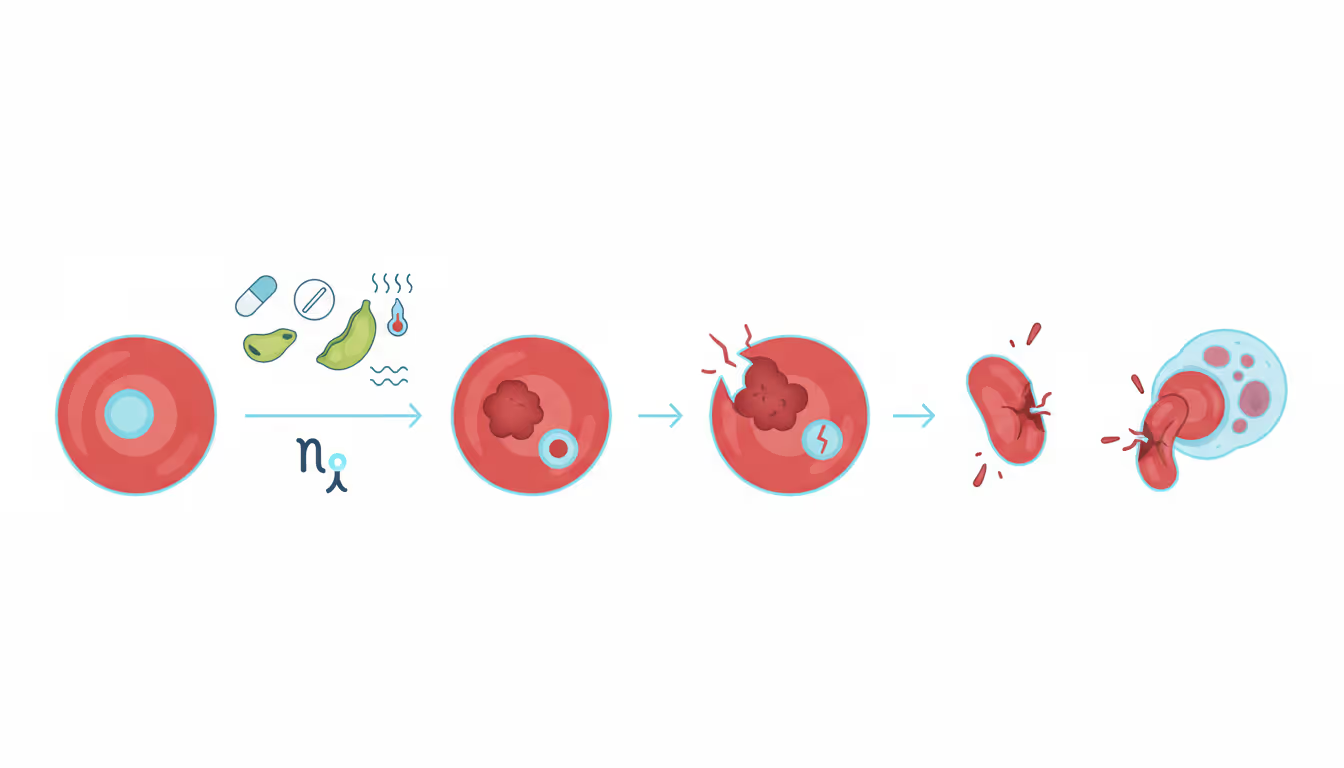
G6PD deficiency is the most prevalent enzyme disorder with significant medical implications, characterized by a lack of the enzyme glucose-6-phosphate dehydrogenase (G6PD). This condition affects approximately 10% of African American males and a smaller percentage of African American females. It is also more common among individuals of Mediterranean descent, including Italians, Greeks, Arabs, and Jews. The gene responsible for G6PD is located on the X chromosome. Men with this deficiency might experience the destruction of their red blood cells when exposed to oxidant drugs, naphthalene mothballs, or fava beans. Drugs that can trigger this reaction include primaquine, salicylates, sulfonamide antibiotics, nitrofurans, phenacetin, and certain derivatives. Other factors like fever, viral and bacterial infections, and diabetic conditions can also induce a crisis, leading to anemia and other complications. The prevalence of G6PD deficiency in certain groups is thought to be due to the protective advantage it provided, similar to sickle cell trait, against malaria.




